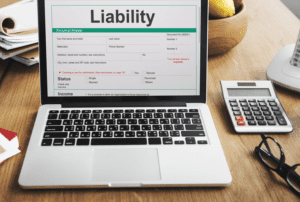
Paper filing remains an option, requiring Form IL-1040 and any necessary schedules. Paper returns take longer to process, and errors or missing information can cause delays. Investment income—such as interest, dividends, and capital gains—is taxable if reported on a federal return. Illinois does not offer exclusions illinois income tax rate for long-term capital gains, taxing the full amount regardless of how long the asset was held.

State Retirement Income Exclusions Essential Information
- An annual franchise tax, which is a tax on the privilege of conducting business in Illinois, is imposed on corporations.
- While some neighboring states have recently changed their tax systems—such as Indiana lowering its flat rate to 3% and Iowa moving to a flat rate of 3.8%—Illinois has chosen to keep its approach steady.
- This structure means that whether you earn a modest salary or a substantial income, the same tax rate applies.
- However, additional local sales taxes may apply depending on the jurisdiction.
- Business owners operating as sole proprietors or in partnerships must report net profits.
In the realm of the estate and gift tax, the basic exclusion for decedents in 2025 is $13,990,000. Illinois, ranked 17th best state in the country by CNBC, is making strides as a great state for businesses. The state boasts excellent infrastructure and education systems, coming in 2nd place nationally for both. When it comes to quality of life, health, and inclusion, Illinois takes 17th https://friendlypet.co.il/what-assets-cannot-be-depreciated-unlocking/ place. With top-notch transportation, a highly educated workforce, and a diverse economy spanning agriculture, manufacturing, finance, and more, it’s a promising place for businesses to thrive.
- The current statutory interest rate on unpaid tax liabilities is 1% per month.
- Unlike states with complex tax brackets that increase rates based on income, Illinois’s flat tax system applies the same percentage to every taxpayer, simplifying calculations and filing.
- Underpayment can result in penalties based on the amount owed and the number of days late.
- Illinois Income Tax did not increase for Tax Year 2024, with a constant tax rate of 4.95%.
- Illinois’s flat income tax rate of 4.95% for 2025 means all residents and those earning income in the state pay the same rate, with no tax brackets to complicate the process.
Business Tax Preparation Checklist Guide

Tax-Rates.org provides easy access to five of the most commonly used Illinois income tax forms, in downloadable PDF format. For all of the tax forms we provide, visit our Illinois tax forms library or the ‘s tax forms page. Illinois allows personal exemptions but doesn’t offer a standard deduction. In general, Oil And Gas Accounting the rate ranges from 6.25% to over 8.50%, depending on where the vehicle is purchased.
- Comprehensive Guide to Local Municipality Taxes Navigating the world of local municipality taxes can seem…
- With top-notch transportation, a highly educated workforce, and a diverse economy spanning agriculture, manufacturing, finance, and more, it’s a promising place for businesses to thrive.
- For all of the tax forms we provide, visit our Illinois tax forms library or the ‘s tax forms page.
- Businesses must calculate their tax liability using a single-sales factor formula, meaning only revenue sourced from Illinois is considered for taxation.
- Owner-to-owner sales, however, are subject to a lower rate, which depends on the price of the vehicle and, in some situations, the model year.
- Understanding Tax Return Status and Amended Tax Returns Filing taxes can often feel overwhelming, but…
Illinois Tax Brackets for Tax Year 2022
Illinois law mandates interest accrual on refunds not issued within 90 days of the filing deadline or the date the return was submitted, whichever is later. However, refunds may be offset to cover outstanding debts, such as unpaid state taxes, child support obligations, or federal tax liabilities. Self-employed individuals and independent contractors must make estimated tax payments if they expect to owe more than $1,000 in state income tax. These payments are due quarterly on April 15, June 15, September 15, and January 15 of the following year. Illinois residents and nonresidents with income sourced from the state must determine whether they need to file a return. The primary factor is whether their adjusted gross income (AGI) meets the state’s filing threshold, which aligns with federal requirements.
Replacement Tax, also known as Personal Property Replacement Tax, is a tax on the net income of corporations, subchapter S corporations, partnerships, and trusts. This tax replaces money lost by local governments when their power to impose personal property taxes was taken away. Replacement tax is collected from corporations, subchapter S corporations, partnerships, and trusts by the State of Illinois and paid to local governments.

Income from a trust or estate is often passed on to beneficiaries who, in turn, must report this income on their federal income tax returns. This income is included in federal adjusted gross income (for individual beneficiaries), which is the starting point for the Illinois Individual Income Tax, or federal taxable income (for other beneficiaries). Illinois offers fewer deductions and credits than the federal tax system, but taxpayers can still reduce their liability through specific exemptions and incentives.
I work in one state and live in another state. What do I file? (Part II)

Self-employed individuals must calculate net earnings by deducting eligible business expenses from gross income. Additionally, self-employed taxpayers are responsible for quarterly estimated tax payments, as Illinois does not withhold taxes from this income. Missing these payments can lead to penalties and interest, making proactive planning essential. Illinois’ income tax system significantly impacts residents and businesses, influencing financial planning and obligations. Understanding the state’s rates, taxable income calculations, available credits and deductions, and filing requirements is essential for compliance and effective tax management. Illinois determines corporate tax liability based on apportionment rules, which allocate taxable income based on the percentage of business activity conducted within the state.
